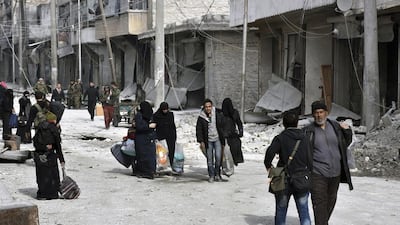The battle of Aleppo is all but over. Bashar Al Assad’s regime is close to taking over control of the entire city for the first time since the civil war began to fracture the country. Thousands of people have been displaced, there are reports of massacres being carried out by regime forces and large parts of the ancient city have been levelled. With the help of Russia and Iran, the regime has ruthlessly wrested back control from rebels. Years of indiscriminate bombing – as world powers bickered over the merits of intervention – helped deliver this victory to Mr Al Assad.
A new chapter is beginning, but it is unclear what will happen next in the vicious conflict. As we struggle to understand how a tragedy of this magnitude could unfold before our eyes, it is critical to unravel the way the Syrian conflict is covered in the media. Up to this point, the coverage of the war has been largely written from a western perspective. Editors from western publications, often based in Beirut or Istanbul because Syria is far too dangerous, rely on freelance journalists and activists for on the ground reporting. Social media updates from unverified sources have been used alongside statements from a variety of human rights organisations each claiming to represent the Syrian people.
The result has been an unusual unity in western coverage of Syria in which publications of different political persuasion embrace the same narrative. While this type of coverage might suit the needs of readers in Berlin or New York, those in the region require a broader form of reportage. We can’t rely on one single narrative of the Syria conflict or any conflict for that matter. This is not to say that the western narrative is wrong. Rather, the question is whether it is a complete narrative.
As the conflict continues to destroy Syria and change the complexion of the Middle East, nuance is more critical than ever, especially for those who have a vested interest in ending the war and reuniting the Syrian people in an equitable manner.

